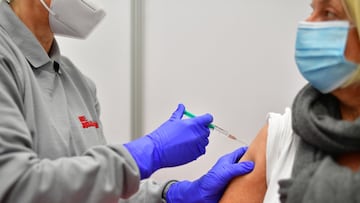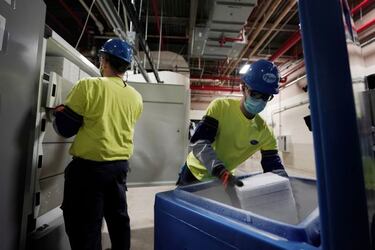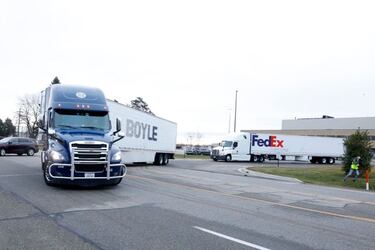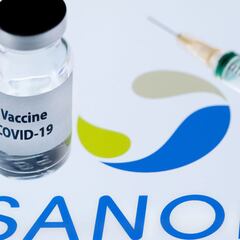Which states will receive the first doses of the coronavirus vaccine?
Distribution of the first doses of the Pfizer-BioNTech Covid-19 vaccine will begin this week in the US with the Moderna vaccine "days away from approval".

On Friday, the US Food and Drug Administration (FDA) approved and authorized the Pfizer-BioNTech Covid-19 vaccine for emergency use. President Donald Trump hailed the moment as a “medical miracle” and claimed that the news means that millions of lives will be saved, bringing an end to the coronavirus pandemic.
The US has been hit harder by the Covid-19 crisis than any other country on the planet. As of today, the United States have recorded 16,067,965 positive cases while the death count continues to creep towards the 300,000-mark with 297,843 lives lost to the virus since the start of the year.
The original aim of Operation Warp Speed was to “produce and deliver 300 million doses of a safe and effective vaccine” starting from January 2021. With the FDA’s authorization of the Pfizer-BioNTech Covid-19 vaccine, the first shipments are due to start going out from tomorrow, Monday.

See also:
- When is Trump White House staff receiving covid-19 vaccine?
- Bill Gates predicts worst months of the covid-19 pandemic ahead
- Which states will receive the first doses of the coronavirus vaccine?
- Is there an allergy risk with the coronavirus vaccine?
- $1,500 stimulus check for covid-19 vaccine? Lowdown on the proposal
- Will masks be mandatory after the vaccine arrives?
All states and territories to receive first batch of Covid-19 vaccine on Monday
Army General Gustave F. Perna, the chief operating officer for Operation Warp Speed who is overseeing distribution of the vaccine to all 50 states and eight territories, explained in a press briefing on Saturday, "Distribution has already begun. We expect 145 sites across all the states to receive the vaccine on Monday; another 425 sites on Tuesday and the final 66 sites on Wednesday, which will complete the initial delivery of the Pfizer orders for the vaccine."
While the initial batches of the Pfizer-BioNTech Covid-19 vaccine will be limited (an estimated three million doses of the two-shot vaccine will be shipped across the country this week – enough to vaccinate 1.5 million people), distribution will be determined on a pro rata basis based on official population figures. The pro rata method was approved 6 November 2020, by Health and Human Services Secretary Alex Azar. Around 5% of the current vaccine stock will be reserved as safety stock to account for uncertainties or other issues that might arise during the distribution programme. Getting the vaccine doses to their destinations also requires logistics as it must be kept at ultra-low temperatures of -80°C.

Moderna vaccine approval expected this week
Related stories
Operation Warp Speed hopes that as many as 40 million doses will have been delivered by the end of the year. Reuters reported that Pfizer/BioNTech will be providing 25 million of those doses and a further 12.5 million will come from Moderna which has yet to receive approval by the FDA but Alex Azar told FOX Business News that authorization of their vaccine “could hopefully happen this week” – it is expected to be passed on 17 December. Once approved by the panel, the Moderna vaccine will be distributed by McKesson.
The distribution process for both vaccines will deliver doses to ten outlets including hospitals, large clinics, pharmacies, long-term care facilities, doctors’ surgeries, Indian Health Services, public health clinics, mobile units, homebound and other federal entity sites. Once vaccines are allocated, it is up to each jurisdiction or agency to place orders, designate delivery points, prioritize recipients and administer vaccines to the American people.

